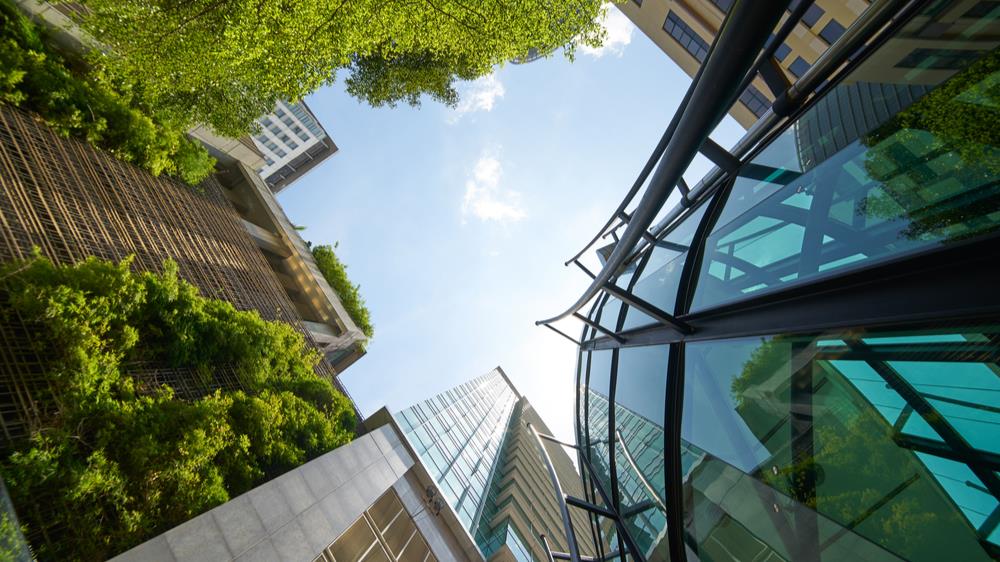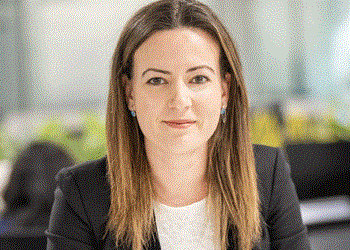

With Covid-19 impacting businesses and altering the way we work and live, it is imperative that the construction sector makes strategic changes not only to sustain its growth momentum but also to add to the wellbeing of its building occupants.
A key step in supporting residents' wellbeing while also contributing to the larger national goals of sustainable economic development is to focus on retrofitting existing buildings to make them more energy and water efficient.
According to studies by the World Green Building Council, buildings and the construction sector account for 36 per cent of global energy use and 39 per cent of energy-related carbon dioxide emissions. Taking steps that cut energy use and reduce harmful emissions through retrofitting therefore becomes crucial for the industry – and for the community.
Closer to home, the UAE has set high targets for building retrofit, which are reflected in the UAE Energy Strategy 2050 and the Dubai Integrated Energy Strategy. The latter targets a 30 per cent reduction in energy and water use by 2030.
To support this, Etihad ESCO aims to retrofit 30,000 buildings in the next 10 years and generate 1.68TWh energy savings and 5.64 BIG water savings by 2030. As of 2017, Etihad ESCO along with other Regulatory and Supervisory Bureau (RSB) accredited ESCOs have retrofitted 2,465 buildings.
The significant steps taken by the UAE to promote retrofitting at the government level include the launch of Ras al-Khaimah's building retrofit programme in October 2018, with the goal of retrofitting 3,000 buildings by the end of 2040.
A key step for the construction sector in supporting the wellbeing of residents while also contributing to the larger national goals of sustainable economic development is to focus on retrofitting existing buildings to make them more energy and water efficient.
Furthermore, Abu Dhabi Power Corporation (ADPower) launched the Abu Dhabi Energy Services Company (ADES) in January 2020, to facilitate the growth of the energy services market and transform the energy and water sector in Abu Dhabi.
Deep retrofit
In driving sustainable development, it is key for private sector leaders to work in tandem with government and semi-government companies to scale to new heights – especially because retrofitting and other initiatives that promote sustainable built environments need the concerted effort of all.
The public-private partnership (PPP) model sets an ideal way forward to leapfrog towards building a more sustainable environment, especially by undertaking deep retrofits of buildings.

The UAE has proven time and again through multiple initiatives, such as Dubai10X 2.0, how government entities can work with disruptive companies and startups to offer enhanced services to improve the life of residents.
As an independent forum aimed at conserving the environment by strengthening and promoting green building practices, Emirates Green Building Council (EmiratesGBC) is committed to promoting retrofitting through its technical programmes, as well as focus days, technical workshops and trainings.
For example, EmiratesGBC organises the Building Retrofit Training programme, which builds professional capacity for decision makers and technical managers overseeing retrofit projects.
In addition to this, we also host the Mena Green Building Awards, an annual regional awards platform to acknowledge and recognise the efforts made by the organisations in this sector.
Ultimately, this complements the UAE government’s goal to attain the Net Zero Carbon Buildings Commitment by 2050 in line with the nation’s ratification of the Paris Agreement.
Our 2017 study that set out to define Nearly Zero Energy Buildings in UAE was the first work locally and regionally aimed at evaluating the feasibility for zero energy buildings and supporting the UAE’s efforts to reduce the carbon footprint of its built environment.
The UAE has proven time and again through multiple initiatives, such as Dubai10X 2.0, how government entities can work with disruptive companies and startups to offer enhanced services to improve the life of residents
In this study, we asked for masked data from our members, partners and standout projects on best practice low-energy projects. We also approached building experts to complete a survey on their understanding of the concept of nearly zero energy buildings.
Through this study, EmiratesGBC defined Nearly Zero Energy Buildings in UAE. Regulators and real estate developers now have access to better understand the opportunities available to them with zero energy buildings.
EmiratesGBC also partnered with Dubai Supreme Council of Energy as a city liaison on the Building Efficiency Accelerator (BEA) platform, a PPP collaboration, launched under the United Nations programme Sustainable Energy for All ‘SE4All’.
As part of this partnership, we conducted energy and water performance benchmarking to support development of strategies and policies to improve building efficiencies. Over 121 properties submitted data for the 2019 study, with 103 properties located in Dubai, including 85 hotels, 27 schools and nine malls.
We analysed the energy and water intensity of hotels, schools and malls. Our findings suggest that the best performers among schools consume 61 per cent less energy compared to the worst performers, while the lowest consuming malls use 35 per cent less energy than the highest consumers. Meanwhile, the best performers in hotel industry are 58 per cent more energy efficient than the worst performers.
No doubt, we still have more work ahead, and we aim to ingrain deep retrofit measures to create an impact and meet our goals to be net zero by 2050. This has never been more important than now, when the need to promote wellness and conserve our resources has become paramount.
You might also like...

Saudi Arabia’s private sector picks up the baton
02 March 2026

Qatar halts LNG production after attack on facilities
02 March 2026

Engie sells power and water assets in Qatar
02 March 2026
A MEED Subscription...
Subscribe or upgrade your current MEED.com package to support your strategic planning with the MENA region’s best source of business information. Proceed to our online shop below to find out more about the features in each package.
Take advantage of our introductory offers below for new subscribers and purchase your access today! If you are an existing client, please reach out to your account manager.






 Ali al-Jassim is the chairman of
Ali al-Jassim is the chairman of 




